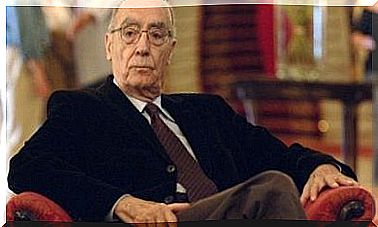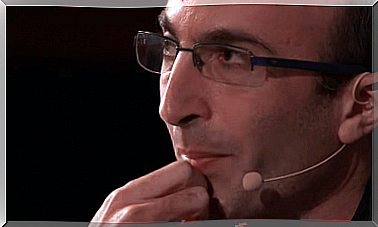People Are Usually Happier After Middle Age

Middle age is the stage between 40 and 60 years old. Until now, it was believed that this phase was marked by a crisis. However, several studies have shown that this is not so valid; everything seems to indicate that people tend to be happier after middle age.
Today, life expectancy is much higher than in the past. There were times when reaching 50 wasn’t so likely. Today, on the contrary, overcoming this age is common. Furthermore, it is not surprising that, in the coming decades, the number of centenarians will continue to grow.
In this scenario, what used to be called “youth” now has much broader limits. People marry later and have children at an older age. These are just some of the circumstances that put happiness at the stage that comes after youth.

A reliable study
Researchers Nancy Galambos, Harvey Krahn and Matt Johnson, from the University of Alberta, Canada, conducted a study on happiness at different stages of life. The study is long-term, as it took place over several years.
To carry out the research, two groups were formed. One of the groups was followed from 18 to 43 years of age, and the other was monitored from 23 to 37 years of age. The reference points considered were the main life events, such as the change in marital status, the health situation, professional aspects, etc.
The study reached five interesting conclusions:
- Most people studied were happier during their 40s than at 18 years of age.
- Happiness is greatest for people who are married and have a job. In both cases, there is also better physical health.
- There is no evidence that there is anything that could be called a “midlife crisis”.
- Generally, people are happiest after their 40s.
- The feeling of well-being starts to grow faster from the age of 30 onwards.

The Myth of the Midlife Crisis
About three decades ago, the expression “midlife crisis” began to become popular. The idea spread that reaching 40 plunged people into a desolation that was difficult to overcome.
They felt that the years had passed too quickly, and it saddened them. So, they ended up making foolish things with the illusion of keeping the youth they had already lost.
The origin of this thesis was a research carried out by the professor of economics at the University of Warwick, Andrew Oswald. According to him, happiness is distributed in a graph in the form of a letter “U”.
The peaks of well-being were around the age of 20 and during the sunset of life, at approximately 70 years of age. The moment of least well-being would happen around 40 years of age.
However, research from the University of Alberta and other studies have proven that this is not really true. They agree that, around age 43, there is a decrease in the feeling of happiness.
Despite this, during this decade of life, the feeling of well-being is stable and tends to grow. This means that, in reality, many people manage to reach fullness at this stage that we label midlife.

Be happier after middle age
The longer life expectancy and the relativism of the concept of youth make it very rare today to see someone aged 40 in an existential crisis. In fact, we observe exactly the opposite. In these years, many people begin to experience a fullness that they had never experienced before.
When we are very young, inexperience and lack of patience with emotions can cause us to have a bad time. It is normal for us to make a lot of mistakes, despite having the motivation and skills to overcome them.
At this stage, we hardly have stability, tranquility and clarity. This generates a lot of suffering, and it applies mainly in the love field, which creates great expectations at young ages.
Over time, the ability to remain in balance in the face of events increases. It also reduces impulsiveness and excessive intensity of emotions. This effectively makes many people happier after middle age.
There are occasional instances where this does not happen, but generally this combination of sufficient experience with satisfying vitality results in greater well-being.









